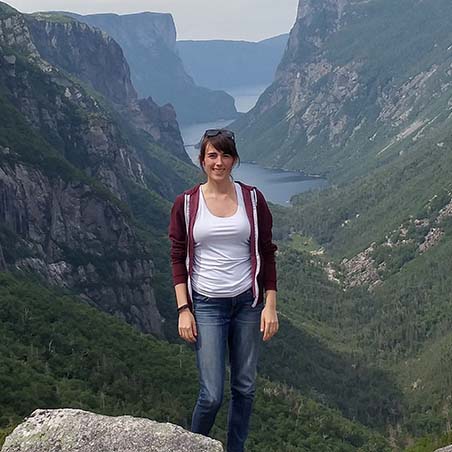Gwendolyn Moncrieff-Gould
Government Relations Officer, Universities Canada
Bachelor of Arts (Hons), Contemporary Studies and Political Science, 2016
What I appreciated about King’s … was the emphasis on confronting the injustices.
With politics as the entrée of many dinner time discussions when she was growing up, Gwendolyn Moncrieff-Gould naturally moved into the political sphere.
“I started getting involved with politics in high school going to environmental protests and picketing with friends,” Gwendolyn says. “When I got to King’s it seemed like everyone had a project—whether it was climate change or prisoners’ rights. So, it was comfortable.”
Gwendolyn found her studies matched that ethos.
“What I appreciated about King’s in the Foundation Year Program (FYP) and in my upper years was the emphasis on confronting the injustices in primary texts and accounts. There is a lot about truth telling.”
In her last year at King’s Gwendolyn made the leap into politics, volunteering for an NDP candidate in the federal election. She joined the youth wing of the party. Then after graduating she went to Carleton University for a Masters in Political Management. The die appeared to be cast.
“I was thinking about continuing campaigning. But as part of the Masters program we had to do an internship. I did mine with Universities Canada in Ottawa. And I just haven’t left.”
A new path stretched out before her.
“We represent Canada’s 96 universities,” Gwendolyn explains. “I am a lobbyist. We advocate for universities and higher education in Ottawa to the federal government on everything from science research funding to reconciliation. That’s my file.”
It’s a good fit.
“I had done some work on Japanese internment when I was at King’s. I became interested in genocide studies and racial histories and relations in Canada. I did a fair bit on the genocide of Indigenous peoples across North America. I am most interested in how we recover.”
That’s where lobbying comes in.
“I help our universities work to decolonize or indigenize their campuses or to tackle some of the calls to action of the Truth and Reconciliation Commission.”
Lobbying is an art form that Gwendolyn is figuring out day by day. She spends hours reading and scanning social media, looking to see who holds the power—who is in, who is out. She requests meetings and when she gets them prepares herself as best she can.
“You’re going to these meetings trying to persuade people that your position is right, or that they should make a change, or at least agree with you. My nerves are often on edge. That goes to the women in politics piece—the impostor syndrome. Here’s a young queer woman meeting with a minister or deputy minister. I have to convince myself that I know what I am doing, that I do belong there.”
Gwendolyn does belong there. She, along with her colleagues at Universities Canada and other organizations are making a difference.
“We are starting to see what I hope will be some really significant and long-term transformative changes in indigenous post-secondary education,” she says.
She credits her time at King’s for teaching her critical thinking and giving her the compassion that is sometimes missing in the political world.
“King’s doesn’t tell you what to do. They give you the tools to help you understand what has happened and it is up to you to figure out what to do and where you want to go with it.”
Posted May 2019
